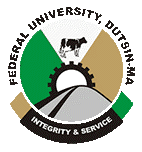Application of CCD-RSM Strategy to Forecast Corrosion Inhibition of Expired Erythromycin on Mild Steel in Diverse Optimized HCl Concentration
DOI:
https://doi.org/10.33003/Keywords:
Erythromycin, Optimization, Gasometric, Corrosion-inhibition, CCDAbstract
The corrosion inhibition of expired erythromycin (EERY) for mild steel corrosion in different optimized HCl concentrations has been investigated utilizing a thermometric approach via central composite design-response surface methodology (CCD-RSM). The percentage inhibition efficiency of EERY increased with increasing inhibitor concentration but declined with increasing acid concentration and temperature. The optimal acid concentration, immersion time, inhibitor concentration, and temperature were 1.5 M, 3.5 hr, 500 mg/L, and 316 K, respectively, resulting in a percentage inhibition efficiency of 70.49%. The developed model was validated using a plot of experimental and predicted values which revealed 95.31% correlation regression. Consequently, EERY can be considered an effective green corrosion inhibitor for mitigating mild steel corrosion in acidic environments.






